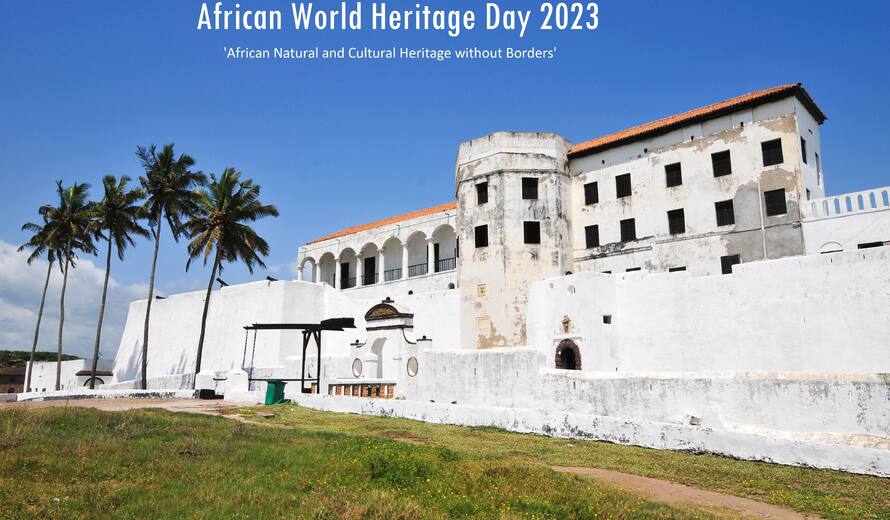
News
African World Heritage Day 2023
Message from Ms Audrey Azoulay, Director-General of UNESCO, on the occasion of African World Heritage Day
Each year, on 5 May, UNESCO and its partners come together to celebrate African heritage.
The richness and diversity of this heritage are embodied in natural sites of breathtaking beauty, which are often home to a unique biodiversity, such as the Ivindo National Park in Gabon, listed as a world heritage site since 2021, and the Bwindi Impenetrable National Park in Uganda. They are also embodied in cultural sites that bear witness to the extraordinary depth of African history, such as the Asante Traditional Buildings in Ghana, and the ruins of Great Zimbabwe, which are also listed as World Heritage sites.
The 139 African world heritage properties are thus an integral part of the common and universal history of humanity. That is why on this Day, UNESCO would like to pay tribute to all those who preserve these treasures, to pass them on to future generations.
But, as we know, there is still much to be done to ensure that the wealth of African heritage is fully represented on the World Heritage List, when today only 12% of the sites inscribed are in Africa; and when, of the 54 African States Parties, 12 have no property inscribed on the World Heritage List. There is also much to be done to better preserve African World Heritage, because out of 55 properties currently inscribed on the List of World Heritage in Danger, 21 are in Africa.
This is why UNESCO, within the framework of its Priority Africa, is making strong commitments to African heritage, starting with the provision of technical assistance to African States that so wish in order to compile their nomination files.
In particular, in close collaboration with our Member States and our partners, including the African World Heritage Fund, UNESCO is supporting the 12 African countries without a site inscribed on the World Heritage List: the objective is that, by 2025, all of them will have prepared and submitted a nomination file.
With a view to improving World Heritage preservation and management, UNESCO is also committed to training hundreds of experts and professionals in site conservation and the use of digital technologies; we are also committed to establishing innovative partnerships with museums, the private sector and our network of university chairs to support site managers.
We will conduct all of these efforts in close collaboration with the African Union. In this context, UNESCO welcomes the recent nomination of José Maria Pereira Neves, President of Cabo Verde, as African Union champion for the preservation of the natural and cultural heritage in Africa.
More than ever, our commitment is to enable African populations, and especially the continent’s young people, to reclaim their heritage and history, and to see them better recognized by international bodies.
For as the great Burkinabe historian Joseph Ki-Zerbo wrote in the first volume of UNESCO’s General History of Africa: “Unless one chooses to live in a state of unconsciousness and alienation, one cannot live without memory, or with a memory that belongs to someone else”.




